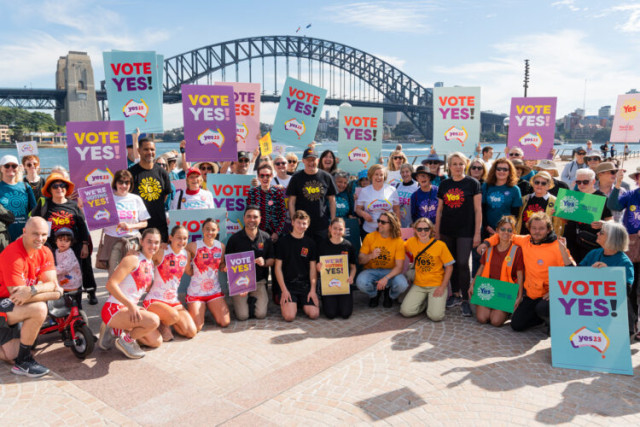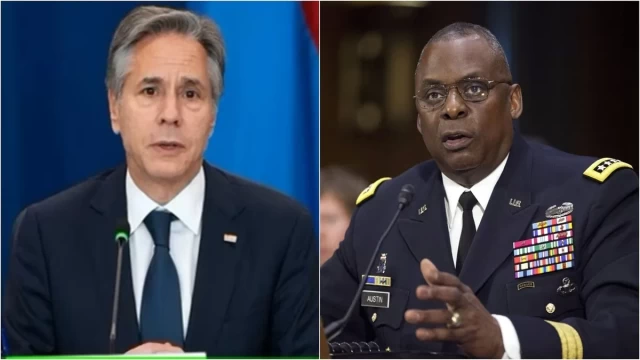Australia's Indigenous Voice Referendum Sparks Debate on Constitutional Changes
- Posted on October 14, 2023
- International Affairs
- By Arijit Dutta
- 446 Views
Australians engaged in a pivotal referendum on Saturday, deliberating whether to embed in their nation's constitution a mechanism permitting Indigenous people to provide counsel to Parliament on policies affecting their communities. The proposed Indigenous Voice aims to acknowledge their unique place in Australia's history and amplify their influence in government decisions.
 Image Source -www.weeklyvoice.com
Image Source -www.weeklyvoice.com
Australians engaged in a pivotal referendum on Saturday,
deliberating whether to embed in their nation's constitution a mechanism
permitting Indigenous people to provide counsel to Parliament on policies
affecting their communities. The proposed Indigenous Voice aims to acknowledge
their unique place in Australia's history and amplify their influence in
government decisions.
Proponents argue that integrating the Indigenous Voice
into the constitution would rectify historical injustices and empower
Indigenous voices. It's seen as a long-overdue recognition of their significant
cultural and historical contribution to the nation. However, opponents fear
that this might inadvertently deepen racial divides and not effectively address
Indigenous disadvantage.
The lack of bipartisan support, often considered vital
for any constitutional change in Australia, has hindered the proposal's
progress. Indigenous leaders themselves remain divided on the idea, further
complicating the issue.
The Indigenous population in Australia comprises both
Aboriginal people and Torres Strait Islanders, who are culturally distinct and
reside in an archipelago off the northeast coast. Together, they account for
3.8% of the population, marking a 23.2% increase in five years, according to
the Australian Bureau of Statistics.
Indigenous Australians confront disproportionate
challenges compared to other ethnic groups in the country, with shorter life
expectancies and higher rates of disease, infant mortality, and suicide. The
proposed Indigenous Voice would offer advice to Parliament and the government
on Indigenous matters, potentially aiding in creating more effective policies
to address these disparities.
If the "yes" vote prevails, the constitution
would be amended to grant the Voice the power to make representations on issues
concerning Indigenous peoples. However, the composition and operation of the
Voice remain unspecified. Proponents envision a representative body
encompassing Indigenous Australians from all states, territories, and remote
communities, with members chosen locally for fixed terms.
Critics, meanwhile, express concerns over potential
unintended consequences, such as the courts interpreting the Voice's role
unpredictably, leading to legal uncertainty. They also warn of the possibility
that the Voice could trigger Indigenous claims for repatriation and
compensation.
The Indigenous Voice concept was first recommended in 2017 by a group of 250 Indigenous leaders who convened at Uluru, a sacred site in central Australia. Despite early opposition, the current government, led by the center-left Labor Party, has pledged to create the Voice.
Also Read: President Biden's Strong Words: Condemning Hamas Amid Israel-Palestine Conflict
Amending the Australian constitution is a challenging process, with a history of only eight out of 44 proposed changes receiving approval since its inception in 1901. Referendums require a "double majority," necessitating majority support both nationally and in at least four of the six states.
This referendum comes more than two decades after the
last significant Indigenous recognition vote in 1999. That referendum saw
Australians reject the addition of a symbolic preamble to the constitution,
which acknowledged the Indigenous peoples' ancient presence and enduring
cultures.




